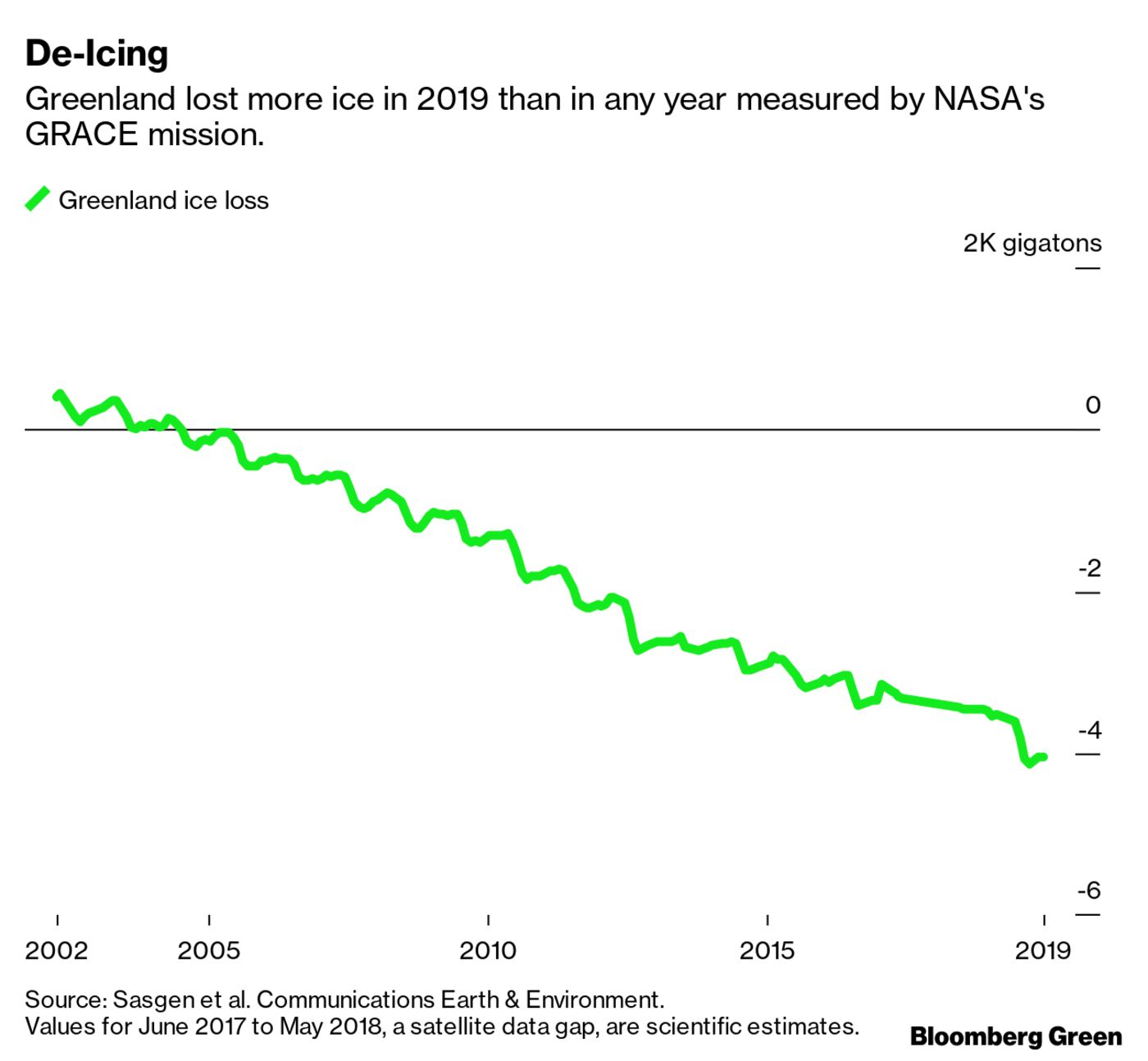Greenland broke its 2012 record for ice loss last year by 15%, a startling sign that a major contributor to global sea-level rise may be accelerating. On its own, ice loss from the world’s biggest island is responsible for more than 20% of sea-level rise since 2005, according to new data published Thursday. That includes ice breaking off from the land and floating off and ice that melted directly into the water. It’s also about the same contribution as all the world’s other glaciers combined.
The changes in Greenland’s ice makeup “are truly astonishing,” Thomas Frederikse, a NASA scientist, said about the new ice-loss data. The Greenland study, which he’s familiar with but wasn’t a part of, shows that “during 2019, Greenland alone caused as much sea-level rise as was caused by all processes combined in an average year during the 20th century,” he said.

“I am starting to get used to higher and higher mass loss rates, which makes sense because the warming continues in the Arctic,” he said. “But obviously this is not a good thing, as this will eventually mean sea-level rise caused by the Greenland ice sheet is accelerating.”
